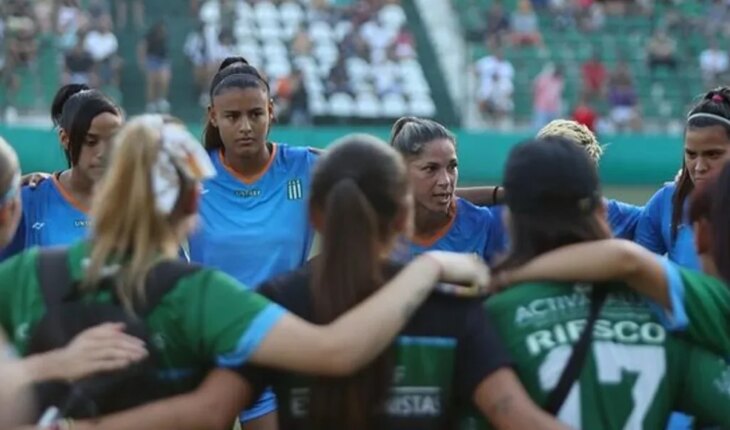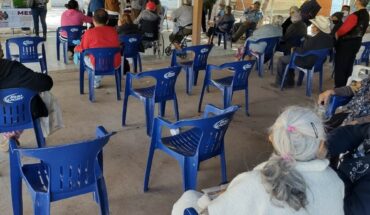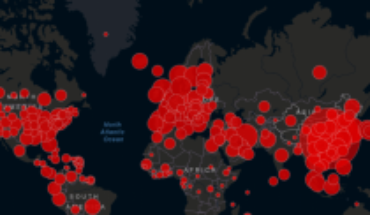*By Rocío García and Mariana CanoIn a special year that will have as a great event the World Cup in Australia and New Zealand, Argentine women’s football transits an ambiguous reality, between lockers that advance and help the growth of discipline and issues that are still in debt. Like any development process, which requires time, willingness and investment, there are conditions that are far from ideal. Although if we look beyond the borders, our country appears a precursor from its project and structure.Where is it standing and where is Argentine women’s football going? The professionalization of the activity, in 2019, marked a break in the history of women’s football in Argentina. Even so, there is still a semi-professionalization because not all teams have their rosters completely professional, because salaries are not equitable or comparable with those of men’s football and the players cannot live from the sport. In addition, situations continue to occur such as those of the recent match between Excursionistas and Huracán for the First Division tournament, which was suspended due to lack of firefighters. However, at the South American level (with the exception of Brazil), Argentina is a pioneer in how it works at the structural level. In dialogue with Filo.news, the journalist and reference in the dissemination of the discipline, Romina Sacher, explained: “In Peru there is no professional football, in Ecuador there is but it is a shorter league and the same happens in Chile, where only last year the professionalization of women’s football was established. And in Paraguay, they are building but they are not professionals. Therefore, in terms of legislation, Argentina is the spearhead and brand where we need to go in terms of building a more professional space for women’s football.” In that sense, Sofía Olivera, goalkeeper of UAI Urquiza and the Uruguayan National Team, delved into the situation in her country. “The last match in the Uruguayan championship was played in November 2022 and there is still no start date. We don’t even know the methodology of the championship, as it varies depending on the start and end dates,” he said. And he remarked: “There is a long way to go before women’s football is taken into account, but not by level, but because few cadres support it as they should.”Sofía Olivera (Instagram: @chofy_13)The advances of women’s football in ArgentinaIn perspective on what happens in other countries, the televising of matches through public media (TV Pública and DeporTV) is an aspect worth highlighting. “In the rest of the countries one or two parties are chosen and they are by private screens,” says Sacher. Beyond the political decision to broadcast as many matches as possible, television has to do with the spaces in which the matches are played. If there is no stadium with the necessary conditions, that also means that the television is not there. But it is still a free access to a lot of matches and ends up being differential, “says the director of the media The Feminine. Another important point is that from this year, in addition to a minimum of 15 professional contracts, clubs must compulsorily add the Under 16 category to continue promoting training development.Photo: VélezIn this line, it is worth highlighting the recent agreement announced between the AFA and the Ministry of Education, so that women’s football is incorporated as an option in physical education classes in schools. “The practice of football for girls in schools is vital because it is not that they are going to force girls to play football, but it is opening up as a possibility for those who wish to do so, which speaks a little more about the concept of free childhoods,” says Sacher. “When we look outward and see what happens in other countries, on March 8, the Government of England committed to more equitable access in school football. Therefore, Argentina is also making progress in what has to do with the breadth of rights in this regard. And it is not a minor fact, because when it seems that the grass is always greener in the house next door, you also have to think that there are decisions that are right and that arise from a state policy, which then multiply and that have a correlate on the outside. It doesn’t always happen outside first and then it happens here.”Romina Sacher (Twitter: rosacher)
The outstanding debts of women’s football in ArgentinaAlthough everything that was explained above is still progress, there are still debts penFirst of all, the captain of Huracán, Rocío Altamirano explained that the main problem of the discipline is that “institutionally there are very few teams that give visibility to women.” In this way, the player remarked that “there are a lot of things to do from the institutional and from the managerial.” As he explained, most of the people who work with the women’s teams come “from the men’s”, where “the economic is different”. In that sense, Altamirano said that in the case of men, players have “tools to be able to train, they have a court, they can play in stadiums” and stressed that “some women’s teams do not achieve that, very few can play two consecutive home games on their courts. “Rocío Altamirano (Photo: Localía Femenina)In that sense, the captain of Huracán said that “those things have to be changed because it is necessary to give more prestige to the players.” In addition, he said: “It is important that our work is respected and the desire we have to leave the club we represent at the top.” For her part, the Uruguayan Olivera was in the same tune as Altamirano and explained: “To continue improving the institutions have to continue getting involved and supporting more from the infrastructure so that the player at some point can only dedicate herself to play.”
“The grass next door is not always greener”: the situation of women’s football in Argentina
March 9, 2023 |





